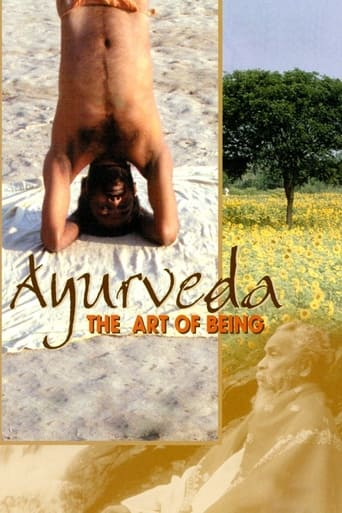tedg
I suppose there are an infinite number of coherent structures that pockets of men have invented to explain the world to themselves. All of these will be of deep sophistication. All will be constrained by the hard wiring in the human mind and what we can handle conceptually. Each will be further constrained by locally invented methods of abstraction. When one is viewed from the place of the other, it seems curious inept.All of these, every one, ties itself to matters of birth, sickness and death, and often with physical features of the body. The amazing thing is that most of them work as functional medicine most of the time. It would be obviously patronizing to judge these here from this writers world. But it is worth noting that the effectiveness of these medical treatments is directly related to how much sense they make to the doctor and patient. And this is helped if there is ancient tradition that can be cited.One such cosmology is the point of this film, a documentary. The actual matter of the documentary consists of small lectures from a guru about the ineffable wisdom that he possesses and which no one else could without his 50 years training. Ancient references are not to be exposed to the public because of their inability to understand, and yet, with each treatment the explanation bends to be simple, clear, obvious. And after a short while, incredibly tedious.What's interesting about this is the relationship of the cinematic world to what the film is about. The film is about how the order of the universe, when you have the ability to perceive it, can be used to make individuals right. In essence it is about the practice of understanding cosmic order and the place of entities in that order.Now, the actual words we hear are insipid to me a great wisdom to someone else, but that hardly matters. What matters is how the film appears. Each shot in another such documentary would be made perhaps with a hand-held camera with the therapy or explanation of the moment a focus. All else would be random: backgrounds, framing, color.But in this case, every shot is perfection. Really, I really mean this. Every shot has the thing in the foreground that we are supposed to be watching. But every shot also has a composition and background that is so ordered, so composed and balanced, so obviously different than what we would see if we were there watching that it makes the point. The world has order. There are great works of art that make that order obvious. We literally see that at work. And that practitioners can apply that order to individuals. We see that in a sense as well, because the order of the world Nalin presents contains the treatments we see. It is not the same of course, but we subliminally make the connection. This is wonderful film-making, and a deep understanding of the manufactured cosmos.There's a curious scene in here. This old guy claims that his power is such that he can eat "raw" mercury and treat himself so that nothing untoward happens. He does apparently eat some. He seems unaware that the camera can catch him palming the poison though.Ted's Evaluation -- 2 of 3: Has some interesting elements.
Ayurveda
The Ayurveda approach to health management is simple. It addresses the whole individual (the Rogi) at physical, mental, and spiritual levels and does not limit itself to the disease (the Roga). It provides a comprehensive model for conduct of your daily life. The basic paradigm is to live life in accordance with your innate, unvarying constitution or nature (Prakrti). Once you understand your prakrti, you have the power and knowledge of the path to attain and maintain your individual prakrti balance - a balance or samam that leads to physical, mental and spiritual health. Ayurveda offers individualized treatments customized to your needs, while healing safely, effectively and completely.
nitha_fiona
I thoroughly enjoyed this video. This is one of the best overviews of Ayurveda that I've seen. This clearly explains the various types of treatments, especially highlighting the cases where allopathy has failed miserably. I would caution the previous reviewer to check the statistics on accidents caused by Allopathic practitioners, before branding any other types of medical practitioners as charlatans. Ayurveda is a vast treatment system with origins thousands of years ago. It is a true treatment based on a holistic approach to health care and the balance and harmony of the energy systems of the body. One of the Ayurvedic doctors did make a point that he would love to use the best of Ayurvedic and allopathic medicine to treat the patients. The ultimate goal is the health of the patient.
lutheranchick
This documentary is at its best when it is simply showing the ayurvedic healers' offices and treatment preparation. There is no denying the grinding poverty in India and desperation of even their wealthier clients. However, as an argument for ayurvedic medicine in general, this film fails miserably. Although Indian clients mention having seen "aleopathic" doctors, those doctors are not interviewed, and we have to take the vague statements of their patients at face value-- "the doctor said there was no cure," "the doctor said it was cancer" etc. Well, "no cure" doesn't mean "no treatment," and what type of cancer exactly does the patient have? The film is at its most feeble when showing ayurvedic practice in America. There it is reduced, apparently, to the stunning suggestion that having a high powered Wall Street job can make your stomach hurt.

